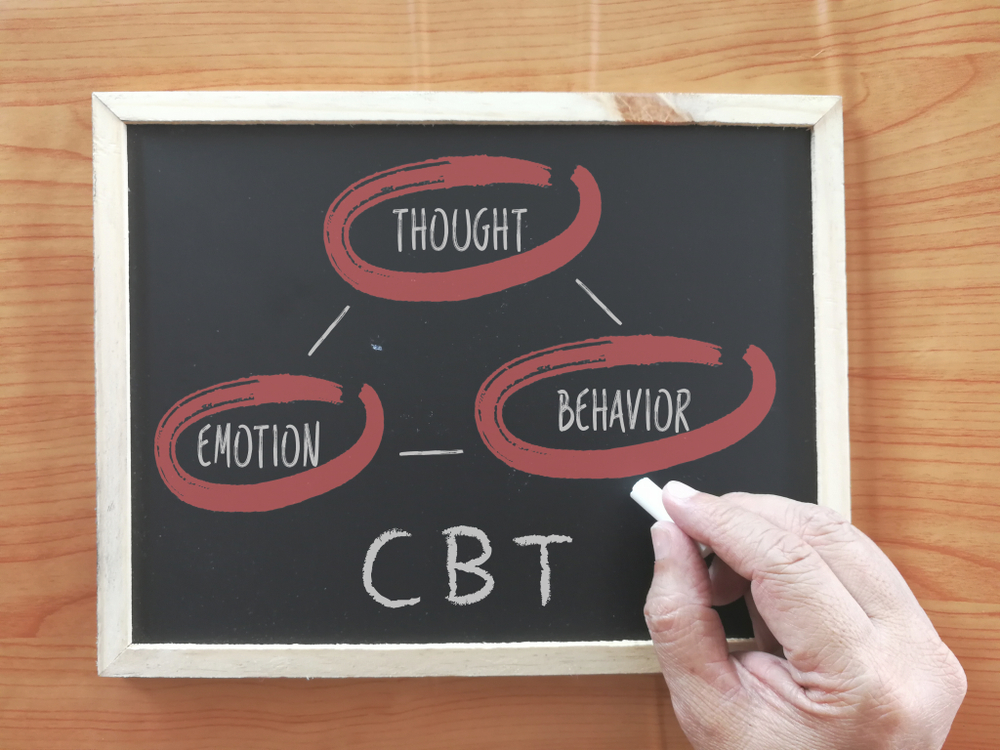
I’ve taken an interest in CBT or Cognitive Behavioral Therapy to the point of buying Cognitive Behavioral Therapy for Dummies. Pioneered by psychiatrist Dr. Aaron Beck in the ‘60s, CBT is fascinating and can easily be applied in situations and behaviors many of us face every day. My primary interest of course concerns those I work with who have autism and other intellectual disabilities.
In a nutshell, CBT is getting outside yourself and grabbing hold of whatever behavior is either bringing you down or making you react negatively. I have seen many people dealing with high anxiety, depression, obsessive compulsive disorder, and other mental illnesses. If they can develop skills in CBT, maybe half or more of the battle is won. It reminds me of John Lennon’s song Mind Games, if only in its title.
The concept of getting outside of yourself and looking at your thoughts and actions like an impartial observer got me thinking of how I and many parents behave with our sons or daughters, especially parents of special needs adult children still at home and, my oh my, how that number has grown.
So parents out there, how about adopting a new way of looking at your son or daughter? I understand that being so close to them on an everyday basis can test your patience and drive you close to insanity. But maybe a new way of thinking might keep you from pulling the last hairs from your head.
Instead of thinking of him or her as your son or daughter, how about thinking of him as a real person? You know, that person you just ran into at the grocery store in the checkout line, the new employee in your office, or the son or daughter of your friend at church.
When your son darts ahead of you to escape a noisy restaurant with rowdy people, or your daughter refuses to comb her hair and wear “nice” clothes to go out, think of them as not my son or my daughter, but as a person suffering from __________ who happens to be related to me and living with me. You then are not the parent, but a compassionate person seeing another person dealing with difficulty in their life.
As parents, we need to detach ourselves from this close bond with our adult children. We need to pull back the curtain and really see the suffering within. With autism, the difficulty in communication and expression of one’s feelings can lead to an explosion down the road if a parent is unable to really empathize with their child much like an impartial counselor.
So what does this really look like in our everyday world? Here are five suggestions that work for me. I hope they can help you too.
1. Accept them for who they are now.
Forget about all those dreamy expectations you had when they first came into this world. Not every daughter is going to meet Prince Lancelot and live in a beautiful mansion and raise three adorable children. Maybe your son didn’t make the varsity football team and won the championship, but he has a servant’s heart and does one heck of job cutting the grass.
2. Don’t repeat yourself
They can hear you just as well as anyone else. Repeating yourself doesn’t make things happen faster but just upsets them.
3. Just back off.
Living in such close proximity to each other and what seems like a 24/7 lifestyle, we get way too close to them in whatever is happening. Parents can turn into micro managers and be too analytical. If you feel tempers starting to flare or voices rising from either side, just take five and back off. Leave the room and say a prayer. If I had a nickel for every time my wife said….
4. Change shoes/perspectives
This is probably best done ahead of time and before a trying situation develops. Remember what you were like when you were 21. Remember what your dad or your mother was like to you at that age? We all had issues of some kind with our parents. They were judgmental and boring too. Looking back now, we hopefully can see some of their wisdom but we sure didn’t back then. So put on your flare jeans, tie-dye shirt and Beatle boots.
5. Develop a spirit of empathy.
Sometime we are so entrenched in our parenting mindsets and affected by how our parents treated us that we lose the sight of what is really suffering and not wanton behavior. Taking more time for prayer, meditation and reflection will help in developing empathy for our children. Keep a journal of your prayers or daily struggles so you can reflect on the situation and track progress or setbacks. I find that just the act of writing things down helps in clearing the mind and setting things a little straighter.



